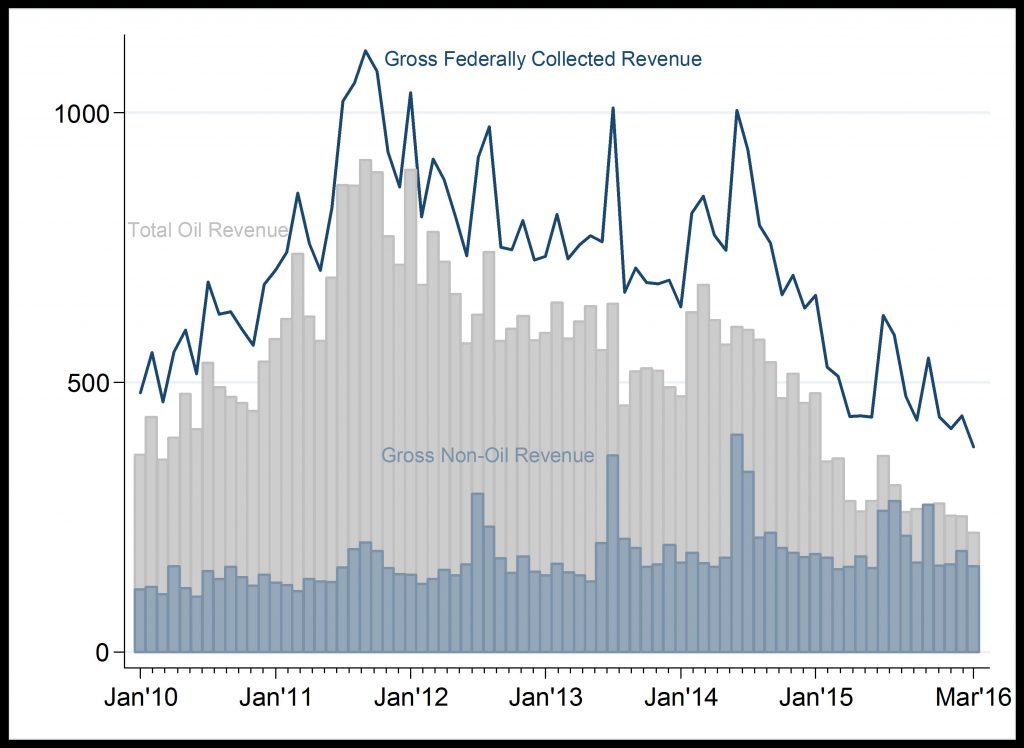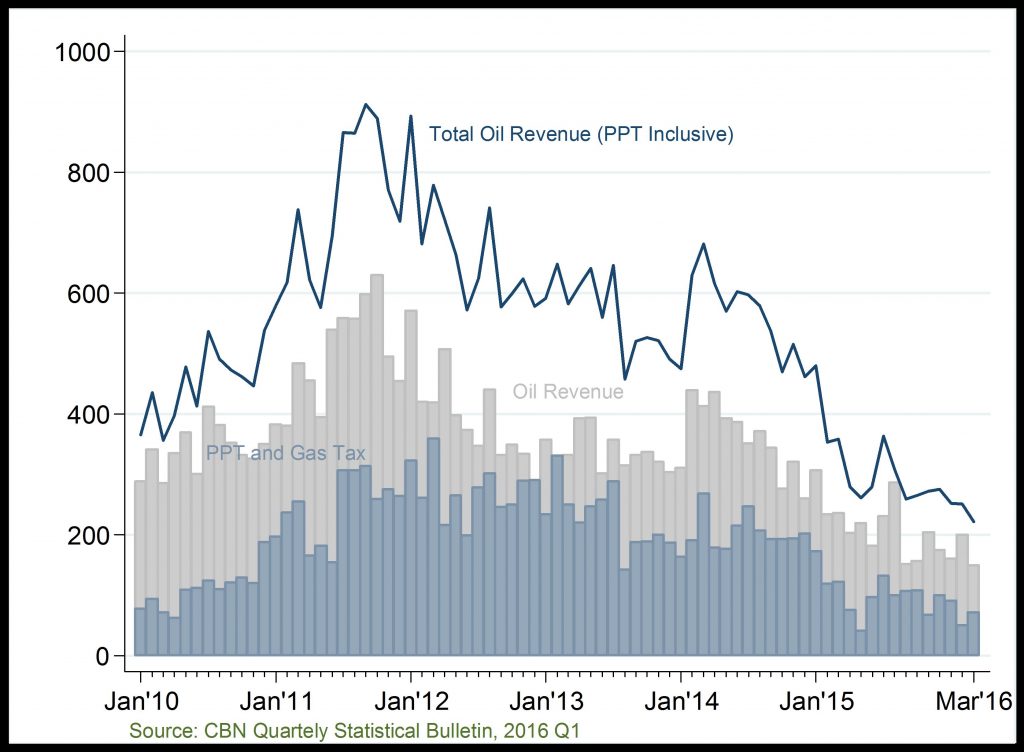Gross Federally Collected Revenue
Gross Federally Collected Revenue (Billion )
Falling government revenue

Total Oil Revenue and its Components (Billion )
Declining oil revenue

Gross Federally Collected Revenue: Both oil and non-oil components of gross federal revenue fell below N40 billion in 2016, after recording a peak of N90 billion in 2013. The decline was most prominent in oil revenue sources due to low oil price and production shortages. On the other hand, non-oil revenue has attained an increasing one-year peak in second half of every year since 2011; reaching nearly to N400 billion by 2014. However, non-oil revenue declined to a trough of less than N200 billion in the latter end of 2015H1 and 2016Q1 due to present challenges in the business environment.
Related
Gross Domestic Product Growth Rate: The growth performance of the Oil and Gas sector has been unsteady throughout years and declined most significantly in 2015Q4, following a positive growth recorded
Crude Oil Price: Crude oil price attained a historical low of $30.7 in January 2016 largely due to excess global oil supply.
Crude Oil Production and Export: Oil production has continued to fall in
Net Foreign Exchange Flows through the Nigerian Economy: The recent fall in foreign exchange earnings reflects the decline in both oil sector receipts from CBN, and non-oil sector inflows from autonom
91-Day Treasury Bills: T-bill rate has highly fluctuated overtime on the account of the rise and fall in investor confidence, monetary policy easing/tightening, governments demand for funds, and infl


